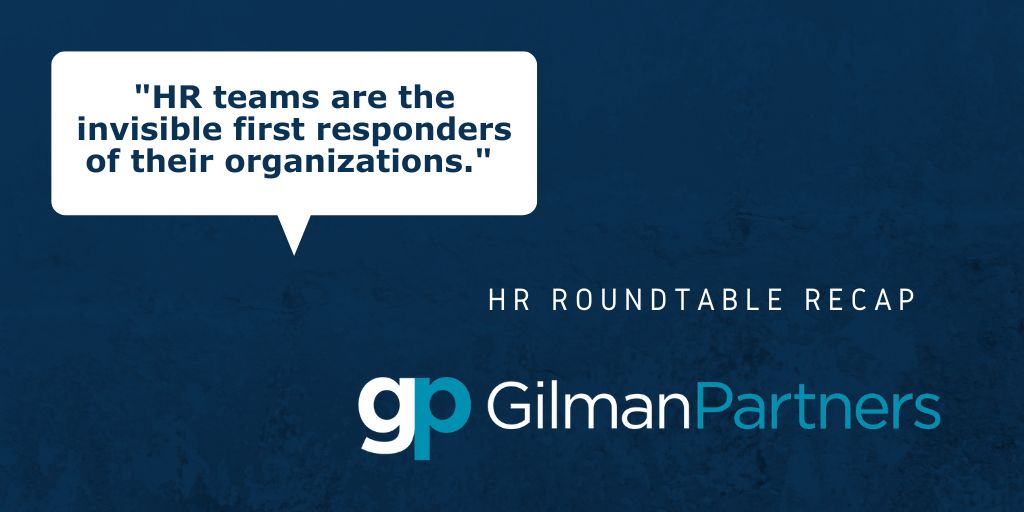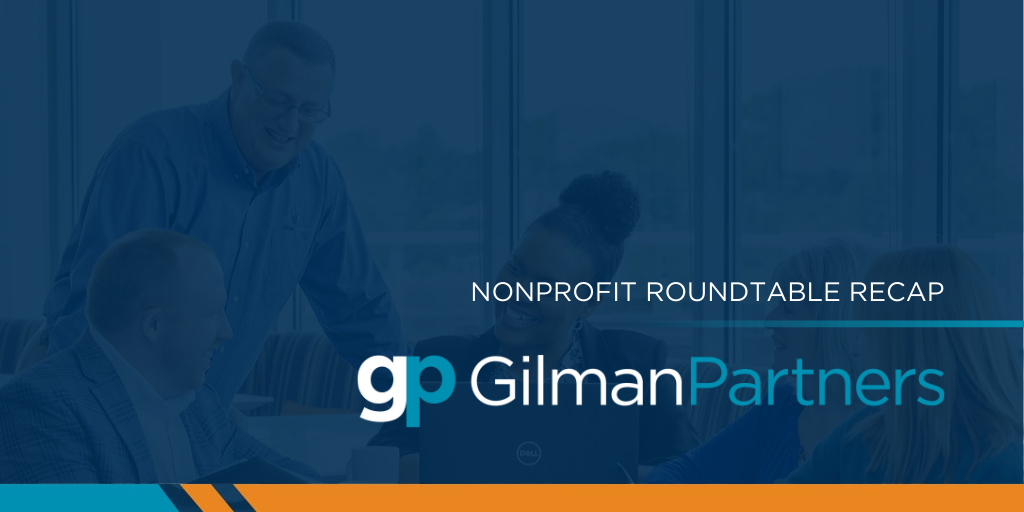This morning, twenty-three HR leaders from across the Cincinnati and Northern Kentucky region met virtually to discuss the results of a recent pandemic leadership survey, the critical role communication plays in employee engagement, HR’s role in employee wellness, and so much more.
Our conversation kicked off with a presentation by Jennifer Mackin, CEO of talent and leadership development firm Oliver Group. This summer Oliver Group conducted a survey of senior leaders from across the U.S. to learn more about the role leadership played in the early months of the pandemic. One of the key findings from the study was that many leaders struggled with how to best communicate changing priorities during the early months of the Covid crisis as well as with how to hold employees accountable for those changing priorities. The research found many senior leaders tended to communicate in a top-down style and didn’t stop to collaborate with others. In fact, fewer than half of those who responded to the survey indicated they included their teams in making their key decisions. In addition, only 24 percent of senior leaders reported they “provided useful and timely feedback to employees about their job performance.”
The HR leaders in today’s roundtable echoed the findings and many shared stories and examples of how especially critical clear and regular communication is to employees during these times of uncertainty. Several of the participants said they distribute regular employee surveys and a desire for more communication is overwhelmingly and consistently part of the feedback they receive.
One participant shared that her organization provides detailed talking points for shift managers to cover with their teams to ensure the entire organization receives regular updates with consistent messaging. Another mentioned his team takes into account unique employee personality styles when they create messaging as some employees need more structure and process while others are more comfortable adapting to the many changes.
Here are some additional key takeaways from our conversation:
- Several participants noted their organizations have invested in people and technology during the past several months. Three attendees said their organizations are hiring additional sales professionals and/or investing in sales technology/training to prepare for what they hope will be an uptick in business in the coming year.
- In this time of uncertainty and with so many issues out of our individual control, employers can boost engagement and satisfaction by giving workers influence and flexibility wherever possible. This might mean allowing increased flexibility in work schedules or even having more input into workplace policies or engagement strategies.
- Many of the HR leaders shared their concerns about employee burnout. Whether employees are working from home and finding it hard to turn email off or are going into an office or manufacturing facility and carrying enormous professional and personal stress, few are tapping into their PTO time to ensure they’re rested. One leader told us she emails employees to remind them of their remaining PTO time and encourages them to use it. Another echoed this and said she works to communicate permission to use PTO time – especially when employees feel guilty stepping away. The HR leader of a nonprofit organization told us she talks with employees one-on-one when she notices their lights on after hours and reminds them their families need them every bit as much as the organization does. The group also talked about the important role CEOs can play in helping employees establish boundaries and take time off to recharge.
- One organization has created two new ERG groups to address employee burnout and support them through these unusual times. One group is specifically for caregivers and the other meets to talk about general wellness issues.
- The group talked about how, for many organizations, remote work will change the office environment and culture as we currently know it. Many of the companies that are planning to downsize office space and allow employees to work virtually more or all of the time are still contemplating how to preserve the connections and relationships that happen naturally when groups are physically together. One HR leader talked about the need for an organization to have a “home base” for creativity and connection. He shared that his team is considering “office hours” where a department or team will be in the office together. That time will be used specifically for in-person interactions and they’ll push external virtual meetings for other days when they’re working remotely.
- The group talked about expectations for merit pay in 2021 given the current economic conditions and the responses were split. A few organizations are still supporting merits in their 2021 budget and another said they will provide a lump sum in June of next year if they’ve hit their business plan at that time. One organization is making a contribution to employees’ 401(k) at the end of this year in lieu of merit in 2021. Finally, a few leaders reported they’ll have to do salary freezes as their companies did a lot to avoid furloughs in 2020.
- Toward the end of our roundtable discussion, the conversation turned from how HR leaders are supporting their employees to how they’re taking care of themselves. One attendee expressed that the past several months have brought together “the skills of a lifetime” and another noted the tremendous pressure on HR teams and other senior leaders to be the organization’s cheerleaders. Some agreed they feel underappreciated and undervalued. We talked about the need for HR leaders to “put on their own mask first” – just as caregivers are instructed to do with oxygen masks on an airplane. Another leader shared that she quietly reminds those around her that “HR teams are the invisible first responders of their organizations.” Strong HR leadership has been a critical component of organizational success in 2020 and HR teams need to give themselves the same permission to step back and recharge that they give the employees in their organizations.




